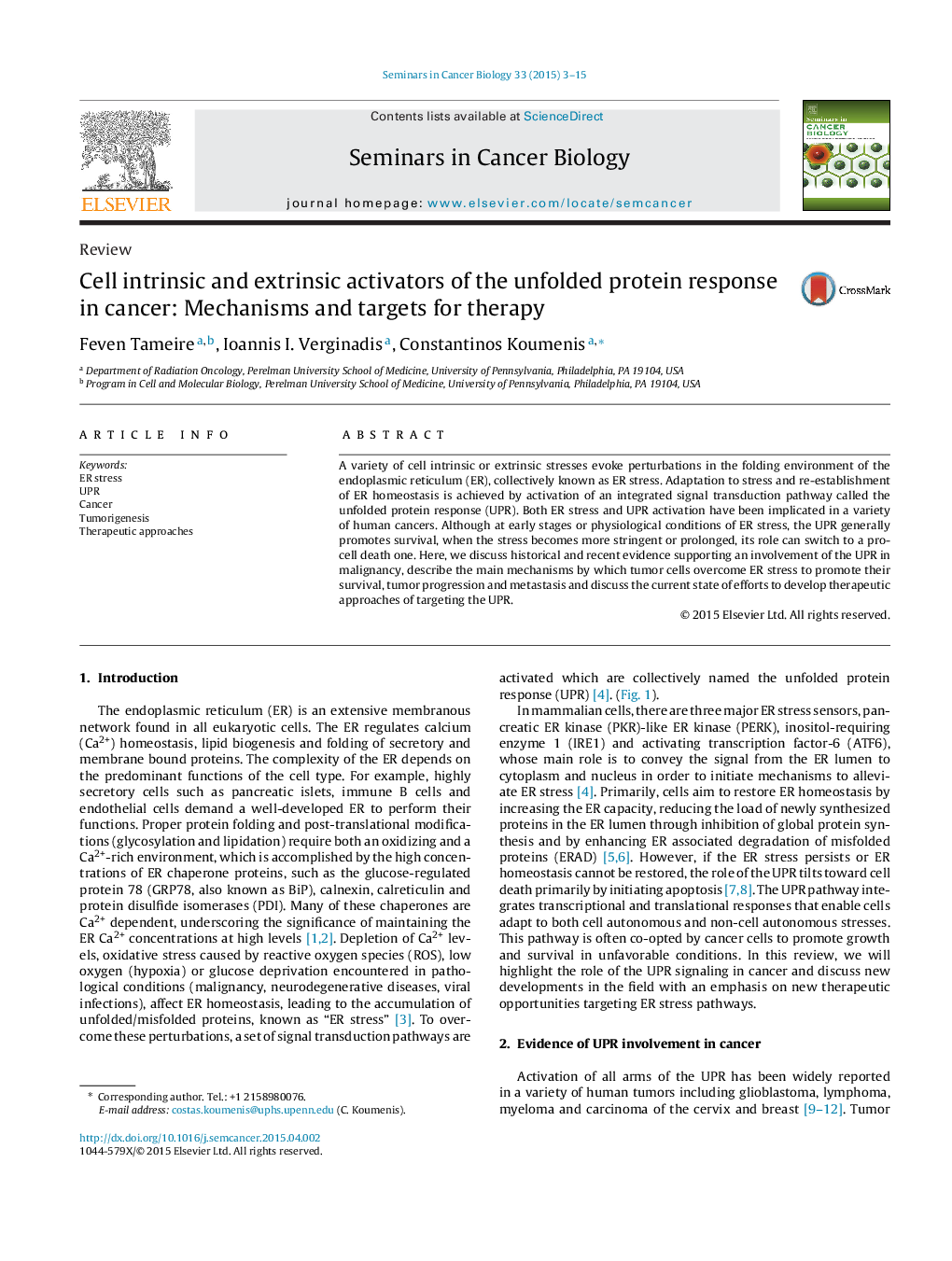| Article ID | Journal | Published Year | Pages | File Type |
|---|---|---|---|---|
| 2023594 | Seminars in Cancer Biology | 2015 | 13 Pages |
Abstract
A variety of cell intrinsic or extrinsic stresses evoke perturbations in the folding environment of the endoplasmic reticulum (ER), collectively known as ER stress. Adaptation to stress and re-establishment of ER homeostasis is achieved by activation of an integrated signal transduction pathway called the unfolded protein response (UPR). Both ER stress and UPR activation have been implicated in a variety of human cancers. Although at early stages or physiological conditions of ER stress, the UPR generally promotes survival, when the stress becomes more stringent or prolonged, its role can switch to a pro-cell death one. Here, we discuss historical and recent evidence supporting an involvement of the UPR in malignancy, describe the main mechanisms by which tumor cells overcome ER stress to promote their survival, tumor progression and metastasis and discuss the current state of efforts to develop therapeutic approaches of targeting the UPR.
Related Topics
Life Sciences
Biochemistry, Genetics and Molecular Biology
Biochemistry
Authors
Feven Tameire, Ioannis I. Verginadis, Constantinos Koumenis,
